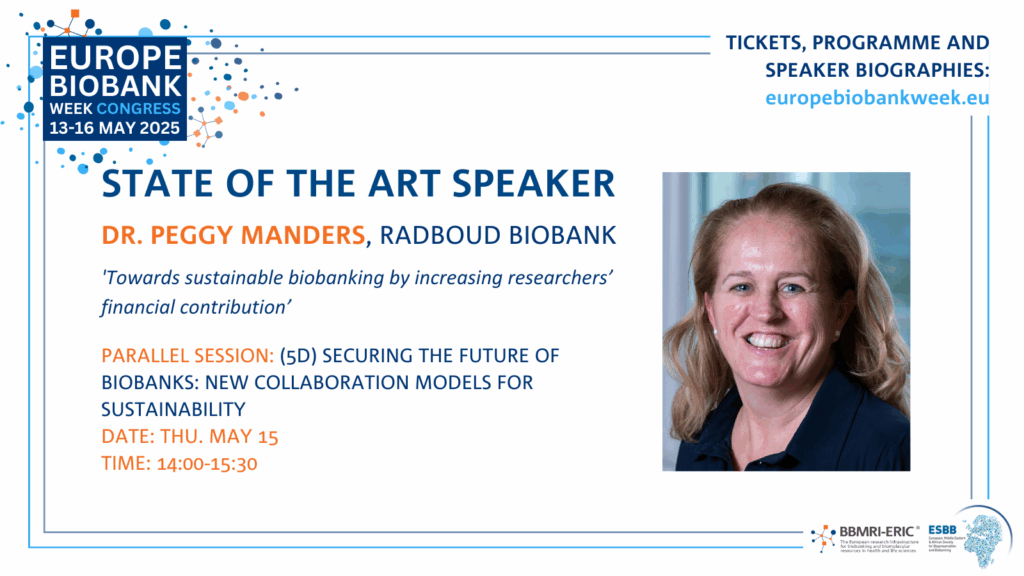
#EBW25 Previews: State-of-the-art speaker for 5D ‘Securing the future of biobanks: New collaboration models for sustainability’
Dr. Peggy Manders, Radboud Biobank, will be the state-of-the-art speaker leading the panel session ‘Securing the future of biobanks: New collaboration models for sustainability‘. We have profiled her biography and abstract here.
Dr. Peggy Manders
Dr. Peggy Manders is trained in epidemiology (biomedical sciences) and received a PhD on biomarker research in breast cancer. She has been active in the field of biobanking since 2008 when she was involved with the national biobank collection Hereditary Colorectal Cancer. Since its founding in 2012, she has worked at the Radboud Biobank in Nijmegen, the Netherlands. In 2020 she became the head of the central biobank facility of the Radboud University Medical Center.
Dr. Manders is also co-lead of the Health-RI theme Biobanks & Collections and works on the Health-RI mission to make health data and biomaterials FAIR (Findable, Accessible, Interoperable, Reusable) for research and innovation.
Abstract: Towards sustainable biobanking by increasing researchers’ financial contribution
The Radboud Biobank (RB) was established as the central biobank facility at Radboudumc in Nijmegen, the Netherlands, to support translational research. Since its establishment in 2012, all costs for processing, storage and management of biological material were for the RB’s account. Researchers only paid a fee to take out samples. This funding model was no longer considered sustainable since the number of samples issued in practice fell short of expectations necessitating financial and organisational changes.
The aim was to improve sustainability by creating incentives for biobank collections to be critical about what, and for what purpose, they collect biological samples. To this end, an independent committee, consisting of Radboudumc researchers, financial and risk management experts, defined changes needed to make the RB financially, ethically, and organisationally sustainable. Last summer, the Radboudumc Board of Directors approved the final business model and associated policy.
In this model, Radboudumc researchers are obliged to include biobank collections in the RB, to improve efficient use of infrastructure and state-of-the-art methodology, unless this is not possible for operational reasons. Researchers pay for half of sample processing costs and for storage. For issuance of samples, a graduated rate per sample is used and labor costs are invoiced.
To assist existing biobank collections with financial planning a 3 year transition phase exists, starting as per January 1st, 2025.
Session details
- Date: Thursday 15 May
- Time: 14:00-15:30